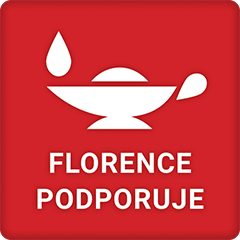


Číslo 10 / 2015
Tick bites

One-half of all neuroinfections are caused by a tick-borne infection. In addition to Lyme disease, or Lyme borreliosis, ticks in Europe also transmit other infections to humans, such as tick-borne encephalitis, or the lesser-known human granulocytic ehrlichiosis.
Patient: Good morning, nurse. My daughter has been bitten by a tick and there is still a red spot near the bite site. That's why we've come to see the doctor, just in case.
Nurse: Good morning, Ms Scott. I see. Please, take a seat in the waiting room; the doctor will call you to come in.
Patient: Ok, thank you. And could you give me advice regarding the correct way of removing a tick?
Nurse: Ideally, use a pair of tweezers or a special tick removal device. Grasp the tick as close to the skin as possible and slowly remove it by moving it backwards and forwards, and turning.
Patient: So we did it the right way.
Nurse: And did you disinfect the bite site?
Patient: Yes, we did, using Jodisol. And I also washed my hands. My daughter is not experiencing any pain, but I am concerned about the red spot that has remained on her skin. I'm worried that the tick might have been infected and she could have contracted some kind of borreliosis or encephalitis.
Nurse: The doctor will check it. In any case, the best thing to do to prevent tick bites in the future is to protect yourselves with appropriate clothes and repellents. Tick-borne encephalitis can also be prevented with vaccination. Ask the doctor about it. You can come in now.
Patient: Thank you very much.
Nurse: You are welcome.
|
|
Lekce angličtiny pro časopis Florence připravuje překladatelská agentura ACP TRADUCTERA (www.traductera.com).
Ilustrační foto, zdroj: http://cs.wikipedia.org
Další články v tomto čísle
- Nic neběží rychleji než léta (Publius Ovidius Naso)
- Potřebují české sestry další typ vzdělávání “4+1”, o němž se mluví?
- Koloskopie
- Stigmatizace a sebestigmatizace u psychických poruch
- Klíšťová encefalitida
- Standardizovaná terminologie pro ošetřovatelskou diagnózu
- Havárie tramvaje a desítky zraněných – záchranáři z celé republiky cvičili v Praze
- Jak se zrodila česká Florence?
- Cením si všech, s nimiž jsem měla tu čest pracovat
- Co přejí Florence…











